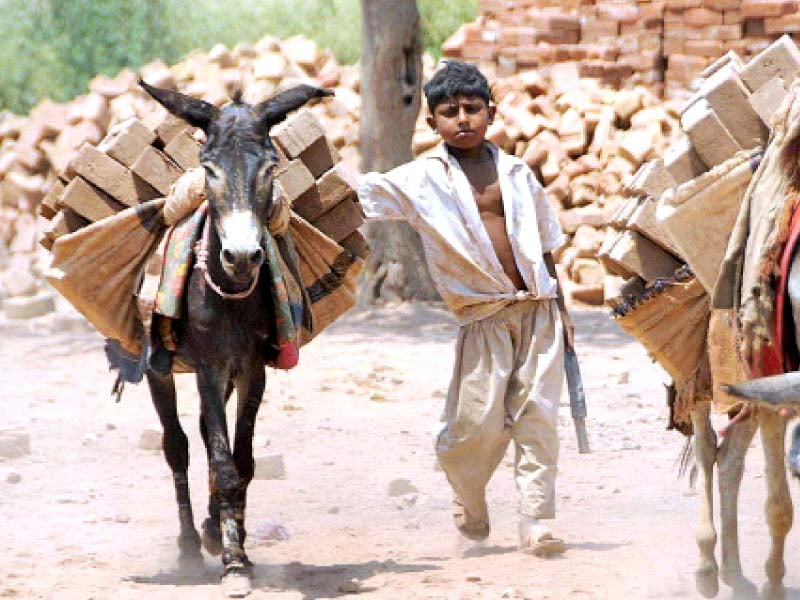
In its first-ever ‘State of Children in Pakistan’ report, the UN agency states that the country’s laws do not conform to its treaty obligations under the United Nations Convention on the Rights of the Child, to which Islamabad is a signatory.
Pakistan first created a National Policy and Plan of Action to Combat Child Labour in 2000, but even by its own policy commitments has failed to eliminate child labour in the country. The plan had called for a progressive elimination of all child exploitation by 2010, with the elimination of the worst excesses of child labour to be achieved by 2005. None of those goals were met.
The 2000 policy, put in place by the Musharraf Administration, called for achieving universal primary education and skills training for children removed from the labour force, as well as creating an implementation and monitoring mechanism to ensure that children do not lapse back into exploitative conditions.
Following the failure of the 2000 plan, the Musharraf administration made a second attempt in 2006, with the National Plan of Action for Children. The plan set specific targets for improvements in health, quality of education, and the elimination of commercial sexual exploitation. It called for a massive coordinated effort by several ministries at the federal and provincial levels. Unfortunately, that plan had so little support within the Civil Service of Pakistan that, when approached by The Express Tribune for more information, most senior officials at those ministries were not even aware of the plan’s requirements, let alone engaging in its implementation.
The Zardari administration made a smaller attempt in 2009, with the National education Policy, which called for universal access to education for all children. The implementation of that policy, however, was put on hold after the 18th Amendment to the Constitution was passed in April 2010, which devolved education down to the provinces and created confusion as to whether old federal policies would retain legal force under the new arrangement.
Some lawmakers say that, unless the province specifically repeals a law, it is required to implement all federal laws that were passed prior to the 18th Amendment regarding subjects over which it now has jurisdiction as a result of the amendment. However, there is some dispute of the matter, and it has not yet come up in the Supreme Court for a definitive ruling on interpretation.
At issue is the fact that the vast majority of Pakistan’s laws regarding the protection of children were written under British colonial rule, or in the early years after independence and do not conform to modern standards or the needs of a 21st century society.
Published in The Express Tribune, May 24th, 2015.










1732355030-0/BeFunk_§_]__-(41)1732355030-0.jpg)






COMMENTS
Comments are moderated and generally will be posted if they are on-topic and not abusive.
For more information, please see our Comments FAQ